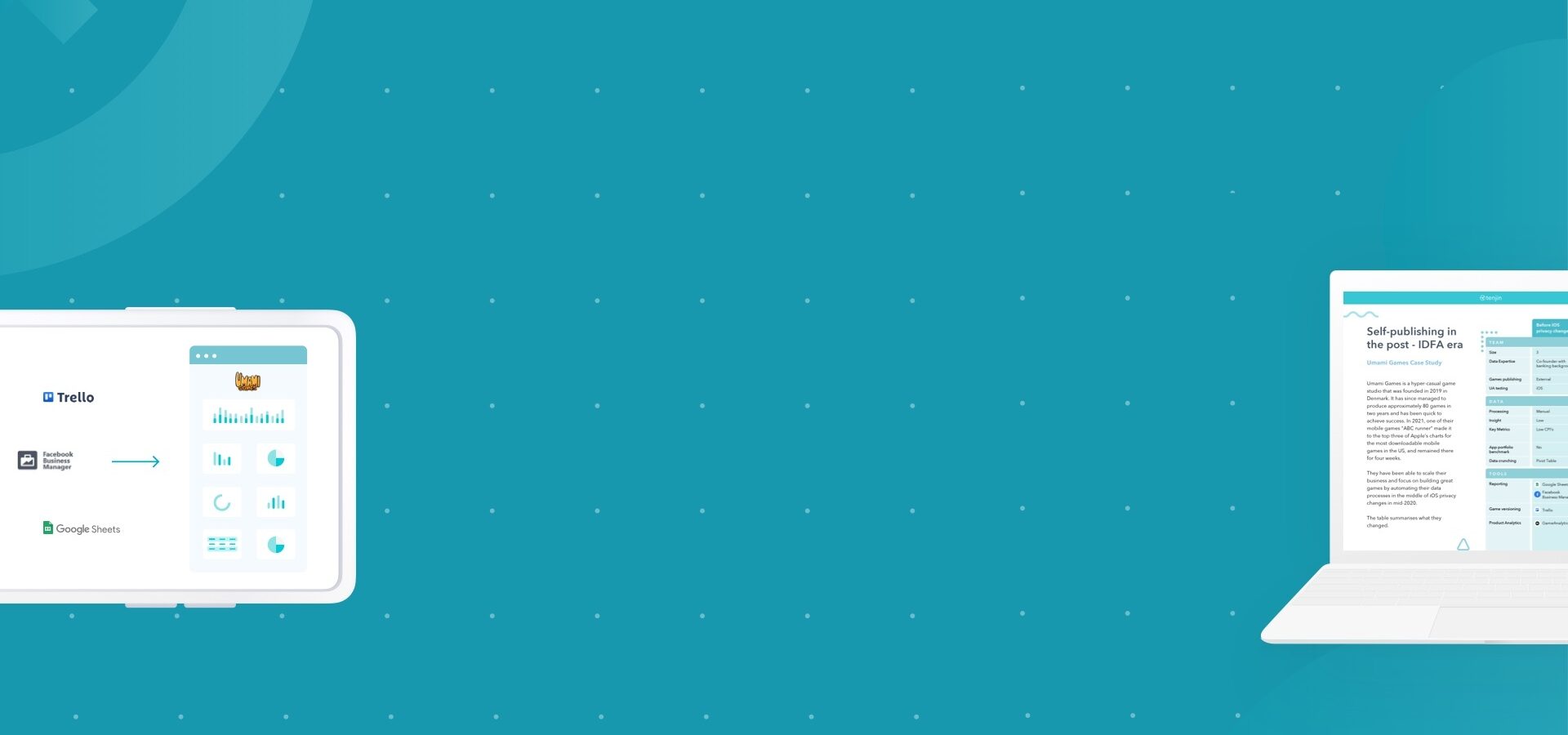
Editors note: This article was written and published by Tenjin. You can find their original version here.
By building internal BI, using Tenjin for attribution, and GameAnalytics DataSuite for product analytics, Umami Games was able to scale their team on the production side by over 100%, and switch to self-publishing. Making the shift towards automating their data processes allowed them to save time and resources, and consequently enabled them to focus on their end goal – building great games.
About Umami Games
Umami Games is a hyper-casual game studio that was founded in 2019 in Denmark. It has since managed to produce approximately 80 games and has been quick to achieve success. In 2021, one of their mobile games “ABC runner” made it to the top three of Apple’s charts for the most downloaded mobile games in the US, and remained there for four weeks.
They were able to scale their business and focus on building great games by automating their data processes amidst the iOS 14.5 privacy changes in mid-2020.
The Challenge
Prior to the iOS 14.5 privacy changes, a lot of gaming studios such as Umami Games relied on manual reporting and data processing for making key business decisions. Once the privacy changes were implemented, however, it became more and more difficult for studios to scale with their existing manual processes. According to Umami Games co-founder and CEO, Riley Anderson, iOS 14.5 gave that final push of encouragement to switch to a more automated data infrastructure.

A glimpse of their processes before iOS 14.5
Before the privacy changes were implemented, Umami Games tested their games on iOS instead of Android, and used GameAnalytics as a free service for product analytics. They worked closely with an external publisher that decided which marketing analytics or attribution tool they should use. At this point, all data extractions were done manually using tools like Google Spreadsheets and MS Excel. They also manually created funnels and compared different versions of their games in Trello. With these manual processes, they only had capacity to take care of one game at a time.

The Solution & Results
A Shift to an automated data infrastructure post-IDFA
Umami Games had been considering shifting to a more automated data infrastructure for a while, but iOS 14.5 gave them the last push. By using an automated data pipeline, Tenjin for attribution, and GameAnalytics DataSuite for product analytics, Umami Games was able to scale their team on the production side, and switch to self-publishing.
Incorporating an automated tool that stores historical data has been instrumental for them to identify outliers – something they couldn’t have achieved with manual processes. An example Riley Anderson gives for this is that when she comes into the office on Monday morning, the system tells her that the game she made last week is a positive outlier with a playtime that is 50% higher than all the other games she tested in the last two years.

Once Umami Games automated their processes, it became sufficient for them to only hire a data scientist or a data analyst to create add-ons and visualizations for their existing tool. This freed up time and resources for them to focus on scaling and building great games.
Download the report to get a summary of how their processes changed post-IDFA.